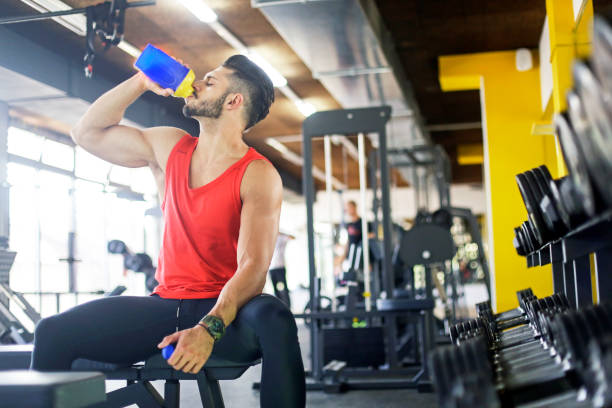Staying hydrated is crucial for good health. But with so many beverage options available, it can be hard to determine which one is the best for hydration. According to a study from Scotland’s St. Andrews University, plain water is not the most hydrating beverage out there.
Factors Affecting Hydration
The researchers found that two factors affect how well a beverage hydrates: the volume of the drink and its nutrient composition.
The more you drink, the faster the liquid empties from your stomach and enters your bloodstream. This allows it to dilute the fluids in the body and hydrate you faster. Beverages that are quickly absorbed, like water, are good for quick hydration.
The nutrient composition of the beverage also affects how well it hydrates. Milk, for example, contains lactose, protein, fat, and sodium, which all help slow the emptying of fluid from the stomach and promote hydration over a longer period.
Best Hydrating Beverages
The research team tested 13 common beverages to see how they impact hydration. Here is the ranking of the most hydrating drinks over a four-hour period:
- Skim Milk
- Oral Rehydration Solutions
- Full-Fat Milk
- Orange Juice
- Cola
- Diet Cola
- Cold Tea
- Tea
- Sports Drink
- Still Water
- Sparkling Water
- Lager
- Coffee
Sugar (in moderation)
While drinks with more concentrated sugars can be good for slow gastric emptying, they are not necessarily the best for hydration. Fruit juices and colas, for example, may spend more time in the stomach and empty more slowly than plain water. But when these drinks enter the small intestine, the sugars get diluted through osmosis, making these drinks less effective in hydrating the body.
Hydration and Alcoholic Beverages
Alcohol is a diuretic, which means it will make you want to pee more. As far as alcoholic beverages go, how well your body is hydrated will depend on the total volume of the drink. Beer causes less water loss than whiskey as beer has more fluid in it. The stronger the alcoholic drink, the more it dehydrates you.
Caffeine and Hydration
Caffeine can also affect hydration. Consuming up to 300mg of caffeine (which equals to 2-4 cups of coffee), will not cause dehydration. But consuming more than this will lead to fluid loss because caffeine causes a mild, short-term diuretic effect. This effect is more likely to occur if you don’t typically consume caffeine. Adding a tablespoon or two of milk to your coffee can offset this effect.
Importance of Hydration for Overall Health
Proper hydration is essential for overall health and well-being. Water makes up approximately 60% of our body weight and is necessary for numerous bodily functions such as regulating body temperature, carrying nutrients to cells, and flushing out waste products. When we don’t drink enough water, we can become dehydrated, leading to symptoms such as dry mouth, fatigue, dizziness, and headaches.
Athletic performance and hydration
Aside from the general importance of hydration for overall health, proper hydration is crucial for athletes and individuals engaging in physical activity. When we exercise at Fitness First, for example, we lose fluids through sweat, and dehydration can impact athletic performance by decreasing endurance, causing fatigue, and impairing cognitive function.
For athletes, it’s important to start hydrating well before exercise and to continue to drink fluids during and after physical activity. While water is a good choice for most people, athletes and those engaging in intense physical activity may benefit from drinks containing electrolytes such as sports drinks or coconut water, which can help replace sodium, potassium, and other minerals lost through sweat.
How to Stay Hydrated
So how can you ensure you’re staying hydrated? Here are a few tips:
Carry a water bottle with you. Keeping a water bottle with you at all times can help remind you to drink water throughout the day.
Eat water-rich foods. Fruits and vegetables with high water content, such as watermelon, cucumbers, and strawberries, can help contribute to your daily fluid intake.
Drink fluids with meals. Drinking water or other hydrating beverages with meals can help ensure you’re staying hydrated throughout the day.
Be mindful of alcohol and caffeine intake. As mentioned earlier, alcoholic beverages and drinks containing caffeine can be dehydrating. While it’s okay to consume these beverages in moderation, it’s important to balance them with water or other hydrating drinks.
